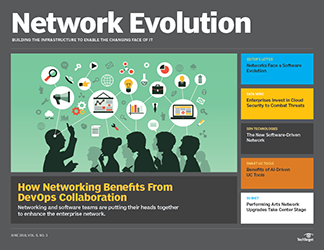PRO+ Premium Content/Network Evolution
Access your Pro+ Content below.
Software-based networks lay foundation of networking's future

This article is part of the Network Evolution issue of June 2018, Vol. 9, No. 3
Enterprise networking takes many, constantly changing forms. Today, networking is in the midst of an evolution from hardware to software -- a transition to what many call software-based networks that will reshape how companies do business in the years to come. Software-based networking uses programmability and automation, rather than closed systems housed on proprietary hardware, as the key levers to operate the network. It relies on a variety of concepts -- among them software-defined networking, network functions virtualization (NFV) and open source software. Applied properly, software-based networks can increase productivity, reduce downtime and enable an organization to respond more quickly to business and competitive pressures. But even as the concept gains traction, software-based networking remains in flux. Software-based networks mean different things to different people, and it will take some time for enterprises to sort out which approaches will work best for them. The reality is that most organizations will use a ...
Features in this issue
-
DevOps for networking evolves with software
Enterprises have yet to fully integrate a collaborative approach to DevOps for networking, but that's changing as networks become more automated and software-driven.
-
Enterprises use network security in the cloud to combat threats
The market for network security in the cloud is growing as enterprises shift workloads to the cloud to combat potential data breaches and system threats.
Columns in this issue
-
Software-based networks lay foundation of networking's future
Software-based networks are evolving, reshaping how companies do business and blending into legacy networking. Enterprises will have to sort out which approaches work best.
-
Benefits of artificial intelligence in communication
Enterprises that want to enhance their UC strategies can see several benefits of artificial intelligence in communication, collaboration, information access and UC endpoint control.
